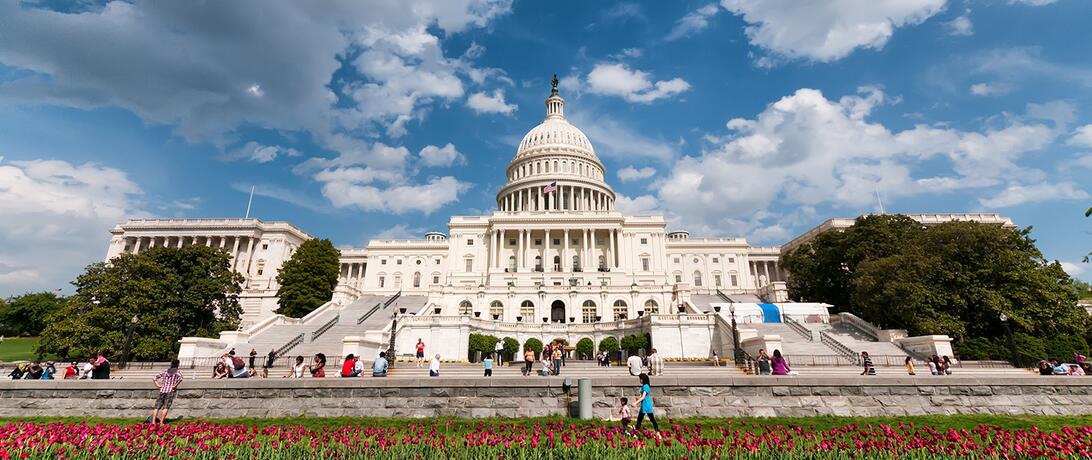Together, they met with partners at Futures Without Violence, as well as with several offices in the Senate that have been actively supporting the WPS agenda. Throughout the day, their discussions focused on identifying ways in which civil society can best support Congressional and governmental actors as they move through the process of implementing the United States’ WPS Act of 2017.
From Thursday evening onwards, Lexie represented OSF at the Peace and Security Funders Group’s (PSFG) annual Federal Policy Briefing. The PSFG attended panel briefings with representatives from local NGOs, the National Security Council, and Congress. Each panel provided insight from its respective sector as to which peace and security issues funders should be concerned about over the coming years. As a member of the Gender and Conflict Working Group, Lexie also met separately with representatives from the Departments of State, Defense, and USAID, as well as individuals from several Senate offices, all of whom work closely with the WPS agenda. During these smaller meetings, the Working Group was able to dive deeper into questions about the development of the US WPS strategy, and gain insight into how funders can empower WPS champions within Congress, as well as across the agencies.
As a result of just two days of meetings, OSF was able to gather valuable information about how best to support and connect the various actors across the WPS community of practice. Moving ahead, the information Lexie and Sarah gathered will help to inform OSF’s work and our ongoing contributions to the field.
